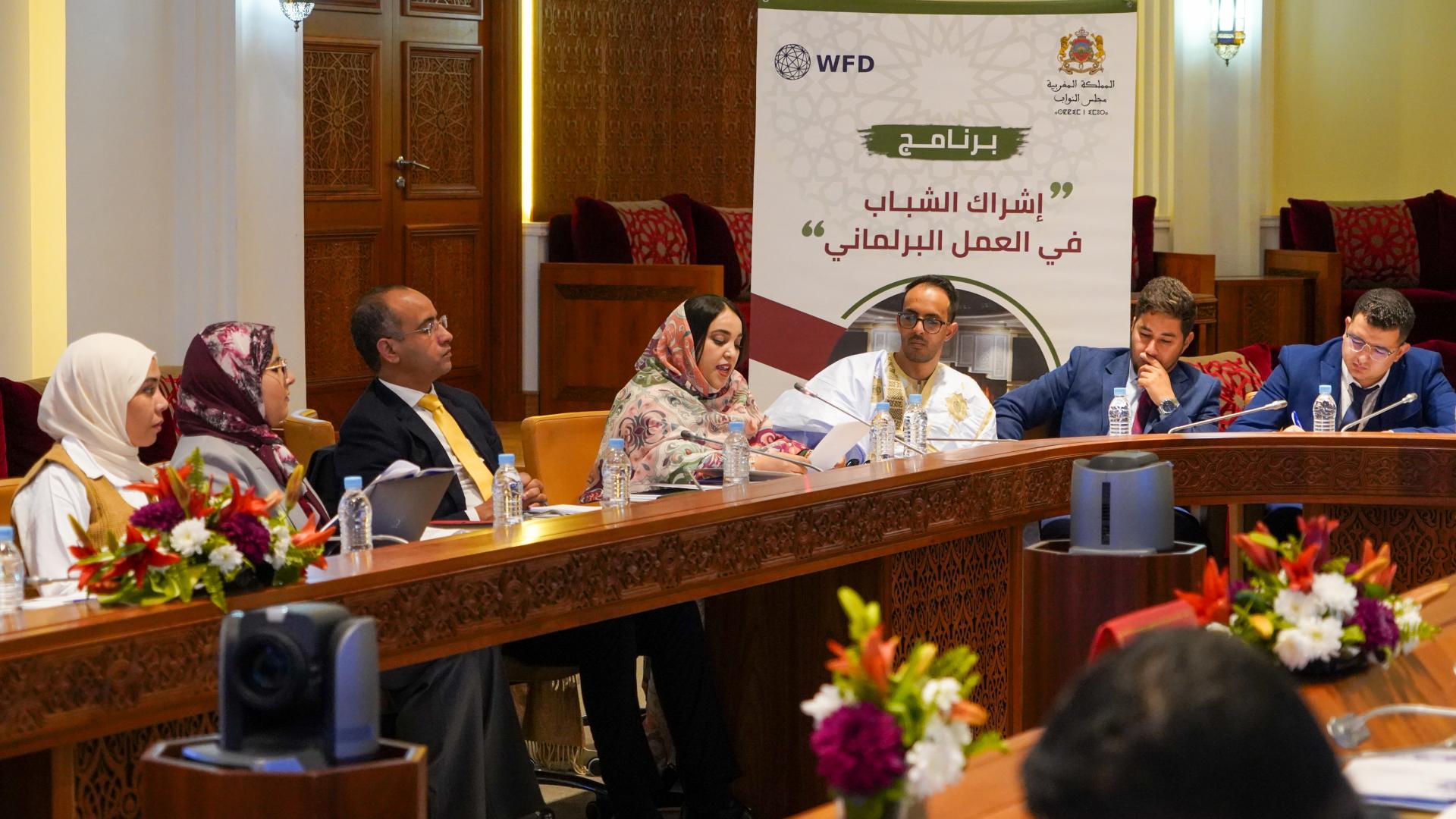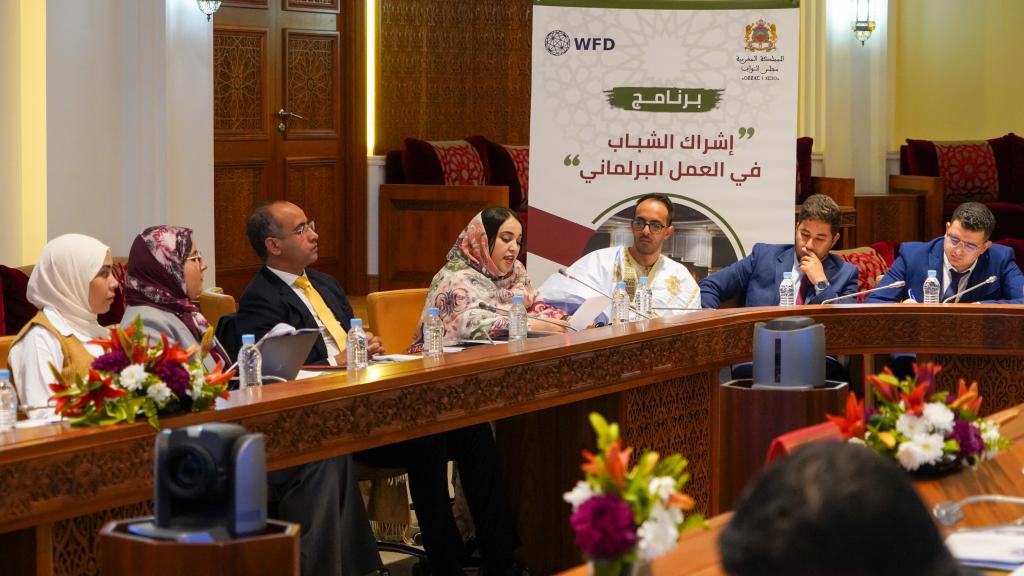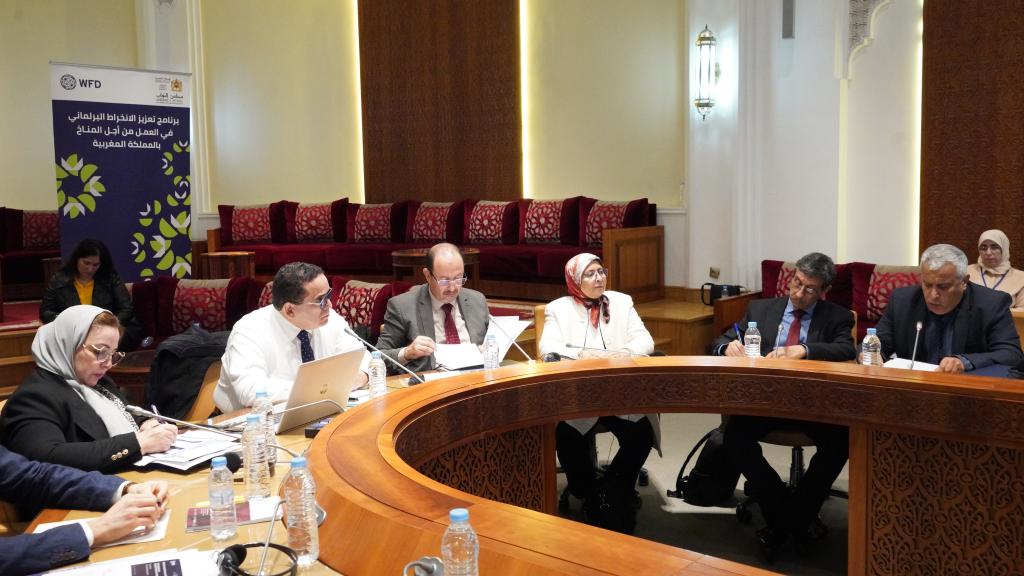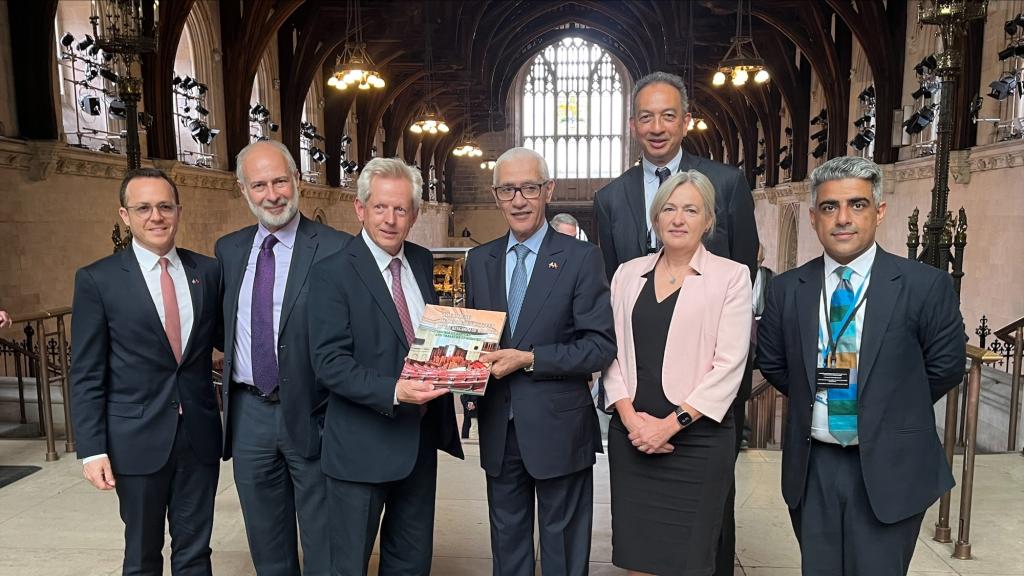Moroccan youth in action: Shaping policy, strengthening democracy

While young people are often involved in informal political processes such as activism or civic engagement, they are underrepresented in formal politics.
So, how can we engage young people in the work of parliament?
In Morocco, a recent initiative by WFD, developed and delivered in close partnership with the House of Representatives, is showing the way.
Many of the young participants, who initially had limited understanding or trust in public institutions, have emerged with greater confidence, a stronger grasp of how parliament operates, and a clearer sense of their own role in democratic life. For many, the programme provided their first direct interaction with the institution—turning abstract perceptions into practical knowledge and opening the door to future engagement.
Discover the story
In close partnership with the Moroccan House of Representatives, WFD supported young people’s political participation and leadership—fostering a more inclusive and responsive decision-making process. This film tells the story.
Low youth participation in politics undermines democracy
Young people constitute more than half of the population across the Middle East and North Africa (MENA). While they are often involved in informal political processes such as activism or civic engagement, they are underrepresented in formal politics.
According to a 2022 OECD report, young people in the MENA region feel they lack genuine opportunities to influence public discourse and participate in public life. Cultural, social, institutional, and political factors discourage their active involvement. This fuels disillusionment and mistrust in politics and politicians, which impacts democratic resilience and stability. And, it means young people’s vital perspectives are not being brought into decision-making. When young people are excluded and not engaged in formal political processes, their real concerns are not addressed and democracy is not living up to its promise.
In Morocco, young people continue to face structural and social barriers that limit their political participation. Many feel disconnected from political institutions, lack meaningful opportunities to engage, and are excluded from decision-making processes. Trust in public bodies such as parliament remains low, and limited access to political education further reinforces the distance between young citizens and decision-making spaces. Young men and women have expressed low levels of trust in institutions, with most young adults largely disengaged from formal political participation.
Engaging young people in the work of the Moroccan Parliament
In close partnership with the House of Representatives, WFD designed and implemented a programme to support young people’s political participation and leadership, fostering a more inclusive and equitable decision-making process.
The programme was developed using a collaborative approach. The House of Representatives played a central role at every stage—helping to map civil society organisations (CSOs) working on youth issues, select participants, and co-deliver programme activities alongside WFD’s national and international experts.
A total of 38 young participants took part in the initiative, representing both CSOs and youth wings of political parties from all 12 regions of Morocco. The programme focused on strengthening participants’ knowledge and skills through a range of tailored capacity-building activities. These included training sessions on legislative processes, public policy development and evaluation, evidence-based proposal writing, strategic communications, and advocacy. Importantly, the learning approach combined theoretical insights from experts with practical case studies shared by senior parliamentary officials, creating a more grounded and accessible understanding of parliamentary work.
Young people shaping policy
The results of the programme have been significant. Many of the young participants, who initially had limited understanding or trust in public institutions, have emerged with greater confidence, a stronger grasp of how parliament operates, and a clearer sense of their own role in democratic life. For many, the programme provided their first direct interaction with the institution—turning abstract perceptions into practical knowledge and opening the door to future engagement.
Participants worked in groups to address policy challenges that resonate with young people globally. Drawing on the insights and skills gained during the trainings, they developed evidence-based policy papers on key youth-related issues:
- AI investment
- Youth inclusion in climate policies
- Empowering youth entrepreneurship
- Enhancing youth citizen participation
They were also guided in formulating clear, actionable recommendations and in crafting advocacy strategies to promote their proposals effectively. Key recommendations include:
- Involving young people in shaping and evaluating water policies
- Expanding market access and funding to boost AI innovation
- Developing a legal framework, such as an investment charter, specifically tailored to micro, small, and medium enterprises (MSMEs)
- Upgrading youth centres to better support civic engagement.
In February 2025, the young leaders presented their policy papers to Members of Parliament (MPs) . The event not only amplified youth voices but also fostered meaningful engagement with policymakers. MPs commended the participants for the quality and relevance of their presentations, offering constructive feedback and practical advice—while also expressing their willingness to consider the young people’s policy recommendations.
From participation to leadership
By championing youth engagement, the Moroccan Parliament and WFD have not only strengthened democracy but also set an example that can inspire other parliaments around the world. Their efforts have contributed to a more open and participatory political environment—one where young voices are not only heard but actively shape the democratic process.
As Morocco’s young leaders step into their roles with greater knowledge, confidence, and access, the desirable long-term impact is clear: a more inclusive and responsive democracy, built with and for the next generation.
WFD remains committed to supporting initiatives that foster youth engagement in democratic governance around the world.



